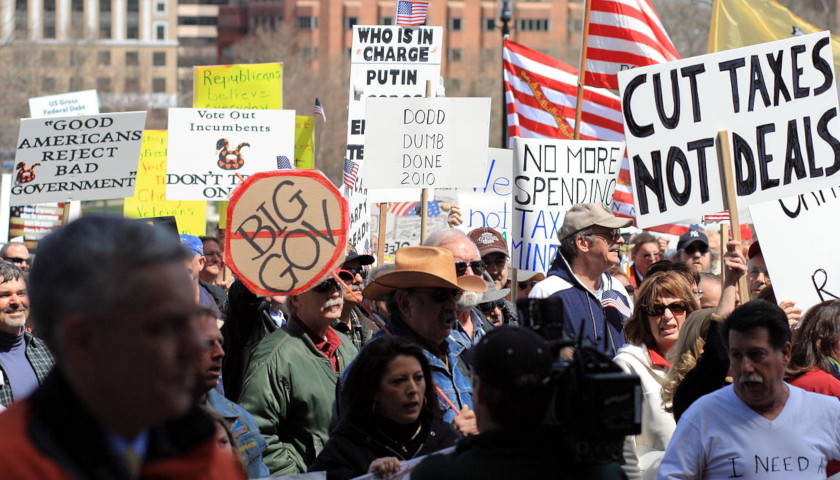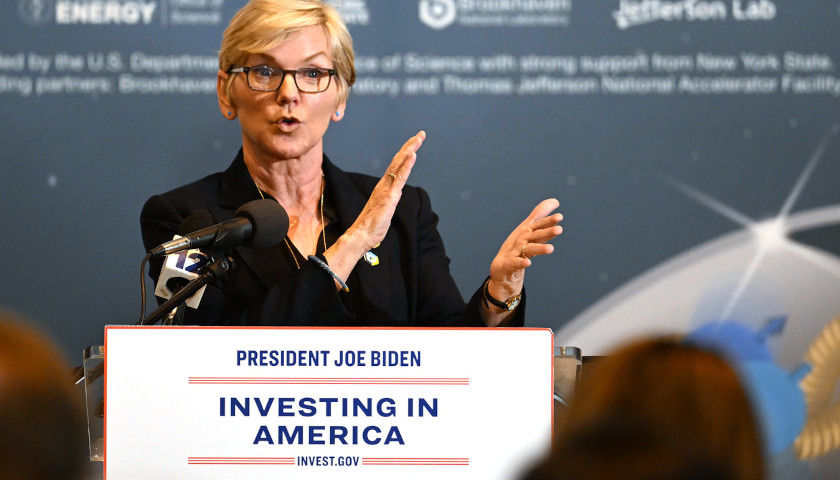An internet free speech expert said in a recent interview that freedom of speech online combined with massive audiences for independent journalists and news sources created a “massive crisis” for America’s security state.
“So initially, even these dissident voices within the U.S., even though they may have been loud in moments, they never reached 30 million followers,” Founder and Executive Director of the Foundation for Freedom Online (FFO) Mike Benz told Tucker Carlson in an interview. “They never reached the one billion impressions per year type thing. As an uncensored mature ecosystem allowed citizen journalists and independent voices to be able to outcompete legacy news media, this induced a massive crisis both in our military and in our State Department and intelligence services.”
“From [the security state’s] perspective, they just weren’t ready for the internet,” Benz said. “2016 was the first time that social media had reached such maturity that it began to eclipse legacy media. This was a long time coming. I think folks saw this building from 2006 to 2016. You know, internet 1.0 didn’t even have social media. From 1991 to 2004 there was no social media at all. 2004, Facebook came out, 2005 Twitter, 2006 YouTube, 2007 the smartphone, and so in that initial period of social media, nobody was getting subscriber-ships at a level where they competed with legacy news media.”
Benz gave an example of the security state’s fears about the magnitude of social media influence by independent journalists and news outlets.
He said that in 2019, a four-star general in the U.S. military posed a question at a meeting of the German Marshall Fund think tank.
“What happens when The New York Times is reduced to a medium sized Facebook page?” the general asked, according to Benz.
The point of the question, Benz said, was to elucidate the fact that the security state has a decades-old relationship with legacy media, used for sometimes nefarious purposes, that could be eliminated if social media allowed independent news to thrive.
“Basically, there was no CIA intermediary between random citizen journalists,” Benz said. “There was no Pentagon backstop. You couldn’t get a story killed. You couldn’t have this favors-for-favors relationship. You couldn’t promise access to some random person with 700,000 followers who’s got an opinion on Syrian [sarin] gas. Then, as that maturity happened, you now had this situation after the 2016 election where they said, ‘Okay, now the entire international order might come undone and 70 years of unified foreign policy from Truman until Trump are now about to be broken, and we need the same analog control systems we had to be able to put bumper cars on bad stories or bad political movements through legacy media relationships and contacts.'”
Benz said the security state agencies then moved to establish and consolidate themselves within the social media companies.
That initial consolidation began with the RussiaGate Hoax, which Benz spoke at length about earlier in the interview.
“Our mainstream media isn’t in any shape or form, even from its outset, independent from the national security state, from the State Department, from the (now defunct) War Department” Benz said. “You had all the initial broadcast news companies, NBC, ABC and CBS were all created by Office of War Information veterans from the War Department’s efforts in World War II.”
Benz said that intelligence agencies maintained their close relationships with the news networks throughout the decades following World War II, and that those relationships exist to this day, despite the fact that political discourse is continually moving more towards social media and away from traditional news outlets.
– – –
Pete D’Abrosca is a reporter at The Tennessee Star and The Star News Network. Follow Pete on Twitter/X.








